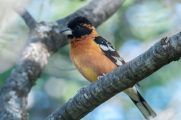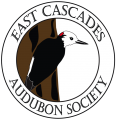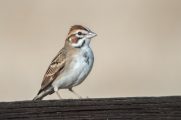Join leader Linda Aldrich, 223-5341 at the Lakeside Drive trail head for this stroll around Mary Lake in west Redding. We will walk the 1-mile, paved trail around the lake with a side trip to the Old Catholic Cemetery. Many varieties of birds call this small lake their home: Great Blue Herons, Double-crested Cormorants, Belted Kingfishers, several duck species and the occasional raptor.
Tag: birds
Discover Birding at Turtle Bay
Our youth/beginner bird walks are conducted on the first Saturday of every month September through June at Turtle Bay. Wintu Audubon can provide binoculars and field guides. Call Roberta Winchell, 945-8342, for more information. We meet at the Monolith parking lot next to the new Sheraton Hotel at Turtle Bay.
8th Annual Dean Hale Woodpecker Festival
This popular event will be held in Sisters, Oregon from May 31 – June 3. Festival participants have a choice of 20-guided tours in search of 11 different species of woodpeckers and 200 other birds that make central Oregon a birding hot spot. Sponsored by East Cascades Audubon Society, this festival offers a fun, friendly, casual atmosphere that is all about the birds. The trips are affordable and guided by two local volunteers with the proceeds supporting the many ECAS projects and programs fostering bird conservation.
Started in 2011, this event is an opportunity to visit a beautiful area and enjoy our local birds. There are 11 nesting species of woodpeckers in the area and there is a good chance to see them all … as well as lots of other cool birds. We keep things low key, fun and casual. Local birders lead the tours (at least 2 tour leaders per group) and group size is restricted by the Forest Service. We follow ethical birding practices, minimize play backs and have strict protocols about approaching nests. The festival is focused on field trips and meeting other birders.
ONLINE REGISTRATION OPENS APRIL 2 AT 9 AM PDT and more information is on the website: http://www.ecaudubon.org/dean-hale-woodpecker-festival You can email questions to Sherrie Pierce at dhwf2018@gmail.com Trips fill quickly.
Eggs Came First
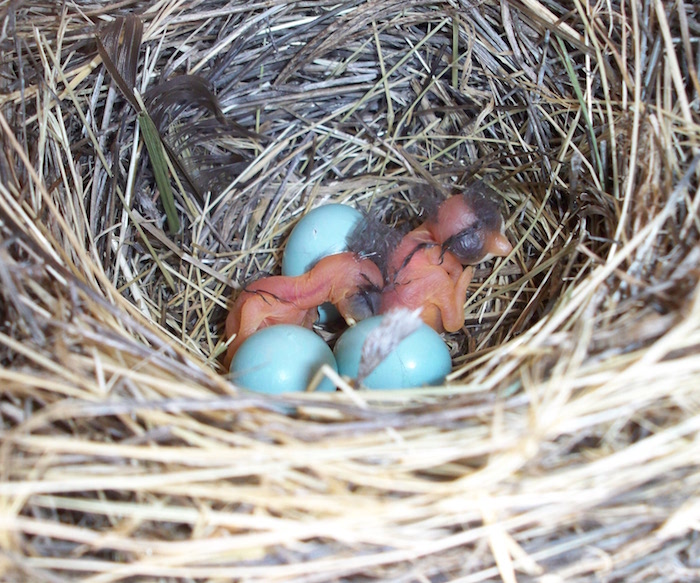
Eggs came first. There. Now you know. Eggs were around long before there were chickens, or any birds at all.
Egg-laying dominates the history of vertebrates, who appear in the fossil record in FARMB order: Fish, Amphibians, Reptiles, Mammals, and Birds. Of them all, only mammals regularly practice live birth. The other classes all lay eggs, and seeming exceptions of live birth are usually illusions—the mother actually makes eggs, but she retains them in her body until they hatch, and then delivers her wrigglers to the outside world.
That little evolutionary trick can be quite useful. Here in California, for instance, the southern alligator lizard lays eggs. The northern alligator lizard, however, keeps her eggs inside. This allows her to move them to warm spots throughout the day, spurring their development. Where the warm season is short, that accelerated development can mean the difference between the young growing up enough to endure the coming winter or perishing quickly.
Birds, of course, have a premium on light weight, so retaining eggs in their bodies is not a good option. Indeed, in the service of minimal mass, most female birds develop only their left ovary, and even that shrinks to a speck outside the breeding season. During nesting season, however, that ovary is full and busy, typically producing an egg a day several days in a row—what chickens have been bred to do year-round.
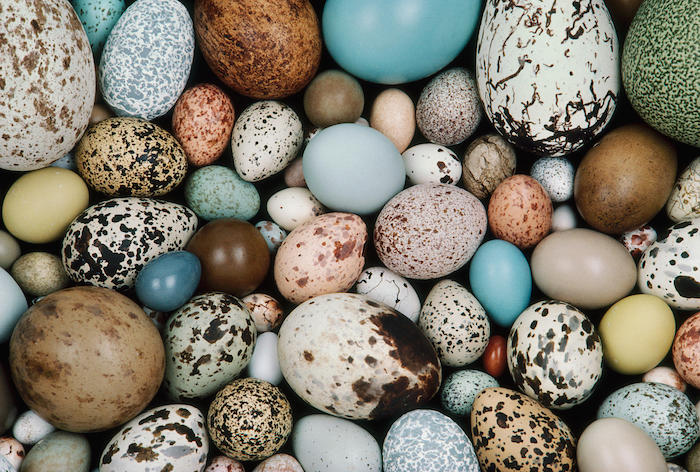
Initial bird development is similar to that of humans. The ovary releases a protein-rich ovum which can then be fertilized.
But at that point, where humans will feed their young placentally, birds must prepare a self-sustaining egg. The ovum gathers its golden protein-rich yolk, which in turn is joined by albumen, the egg white. The albumen consists of water and more protein for the developing chick. Uterine cells squirt that eggy blob with calcium carbonate, which hardens into the smooth shell that curves round the birds’ precious hope of life. Egg farmers know that sufficient calcium in the mother’s diet is vital to forming viable eggs. Where calcium is lacking, a mother bird may donate up to 10% of the eggshell from her own bones.
With the egg formed, other cells squirt the species’ pigmentation onto its surface. Only two pigments, a blue-green and a red-brown, create all the variety of patterns and colors on birds’ eggs.
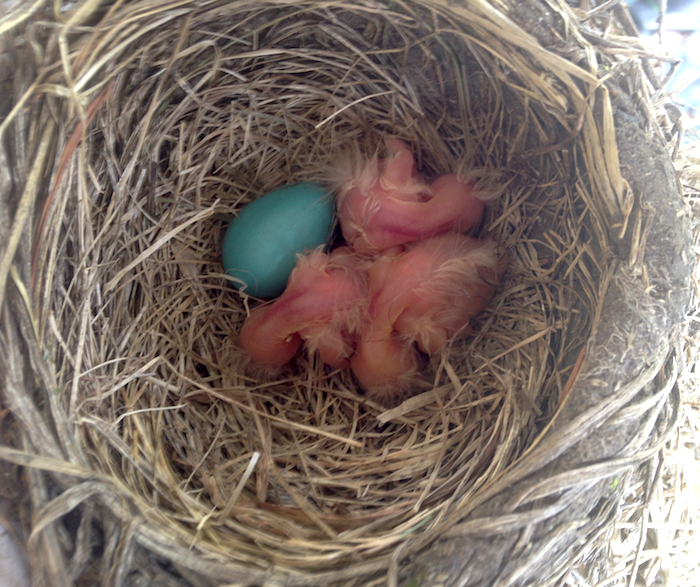
Like reptiles, who often bury their eggs, birds that nest in cavities and burrows usually have white eggshells. More exposed eggs are often speckled into camouflage. But some, like robin’s baby blues, are strikingly uncamouflaged even though exposed to the world and its predators. This presents another chicken-and-egg question: Which came first, the parenting or the color? Can protective parents like robins simply afford colorful eggs because they are dutifully present to shield their young, or did colorful eggs come first, with their demand for attentive parents? Does care, then, create beauty, or does need evoke care in successful species?
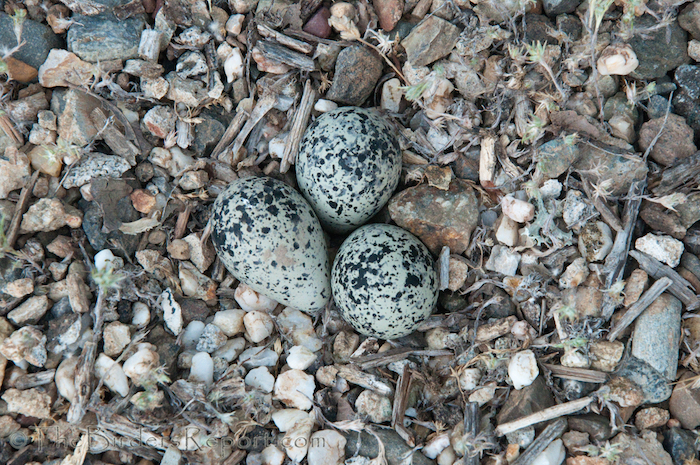
Other questions abound. Some eggs are oval, even round; others are conical. The hypothesis that conical eggs roll in a circle, and therefore are more likely among cliff-dwelling birds, isn’t really supported by the evidence. Another hypothesis is that since round eggs require less calcium to coat them, while pointier eggs can pack more tightly for incubation, the two shapes offer competing advantages; or perhaps it’s just that birds with more streamlined bodies can more readily lay thinner, pointier eggs.
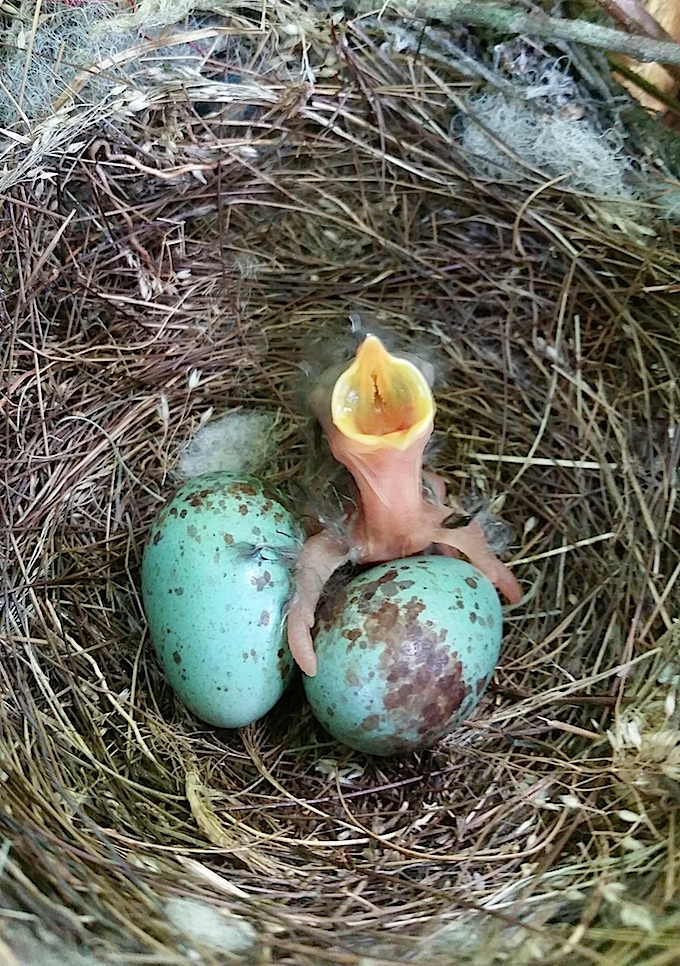
This time of year, the most numerous bird on Earth, the domestic chicken, supplies the goods for more questions that many of us enjoy: How did you dye your eggs? Where did you find that one? What’s for breakfast? Or the worthy observation: aren’t eggs amazing and beautiful!
Churn Creek Open Space Bird Walk
A trip to Churn Creek Open Space just west of Lema Ranch. Partially paved trails wind their way through 180 acres of blue oak woodland and open grassland meadow. Sections of the trail meander by Churn Creek itself where this primarily urban stream is still preserved in its more natural state with lush willows, valley oaks, and cottonwoods. The McConnell Foundation owns and manages this property and have utilized cattle for the past four years to help control weed populations, reduce the risk of fire hazard, and maintain native plants and associated wildlife communities. Our co-leaders, Alicia and Pablo Herrera, will take us on a 3-mile loop hike where we’ll encounter common oak woodland and riparian nesting species including Ash-throated Flycatcher, Lark Sparrow, Nuttall’s Woodpecker, Spotted Towhee, among others. We will meet at 8am at Minder Park, in the cul-de-sac at the end of Minder Dr., just to the south of the open space trails.


